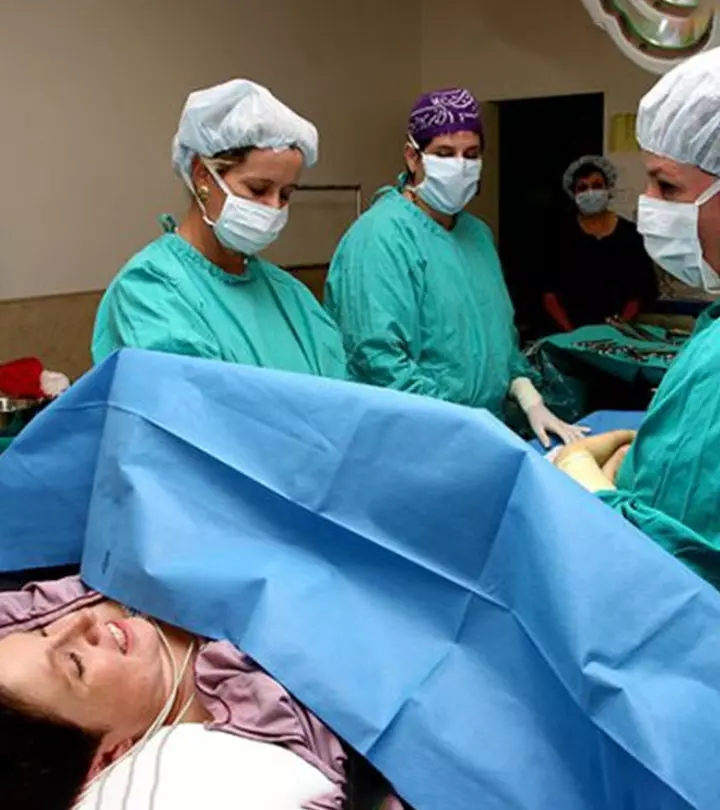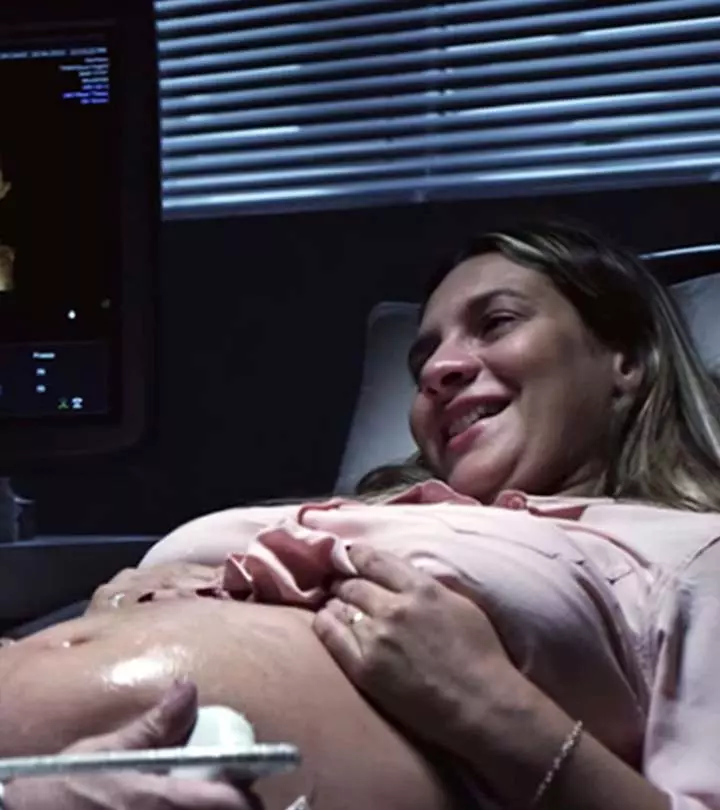

Image: Shutterstock
If you are facing the very real probability of undergoing a caesarian birth soon, then this is one of the questions that is most likely haunting you:

What am I going to feel?
Most C-sections are conducted under regional anesthesia, numbing only the lower region of your body. Hence you can expect to be awake and aware of sensations during the birth. However, you must never feel any pain. The following sensations are what you can most likely anticipate to encounter, as reported by mommies who have successfully undergone C-sections:
1. Movement
Though you receive sufficient coverage from the administered anesthesia, one can still discern movement. Though this is by no means the same as pain, it could still be frightening.
2. Tugging
Many pregnant women claim to sense a ‘tugging’ sort of impression. This is basically a result of the doctor’s maneuvering your organs and extracting your baby. According to most delivering mothers, they feel the tugging sensation mostly during the actual removal of their baby. Usually, your doctor will try to warn you so that you do not feel frightened or taken by surprise. Most may also advise you to practice some breathing or relaxation technique during this rather short yet intense period of C-section birth.
3. Shortness of breath
During this surgical birthing, you can expect to feel a significant amount of pressure. This will especially be the case when the doctors happen to press upon the superior surface of your uterus in order to remove your baby. Though this is probably the most uncomfortable segment of your delivery, the good news is that this only takes seconds. When asked to describe, most women claim it’s almost like somebody is lying upon your abdomen.
Some mothers experience just a fleeting shortness of breath, while others claim they endure it throughout their surgery.
Whatever the case, make sure you report to your anesthesiologist just what it is that you’re feeling.
4. Pain
Certainly, this is something you must not be feeling at all. It is very unlikely that you experience any sort of pain at the site of the surgery. Rest assured, your doctors will repeatedly test until they’re confident you are completely comfortable. However, certain regions are difficult to medically numb and called a ‘hot spot’ or ‘window’. They are more often associated with epidural administered anesthesia than spinal anesthesia.
Never hesitate to inform your anesthesiologist or doctor exactly what sensations you’re experiencing so that they can report whether what you feel is to be expected or not with your C-section.
There are several more options, in terms of anti-pain medication available to you, such as intravenous medication or even general anesthesia. Ultimately what is administered will depend on the preferences of your doctor, your own suitability and at what moment during the surgery the pain occurs.
Pain can occur during unplanned C-sections as well as those that are scheduled. If you are undergoing an emergency C-section, then expect to experience it unless you’re under general anesthesia.
5. Numbness
You may think it’s somewhat bizarre to talk about numbness right now, but it’s still worth a mention. In some cases, you may not experience any pain anywhere yet you may still be able to sense someone touching you.
This is very much like your experience of the dentist making your mouth go numb for any dental procedure, where you could sense the dentist working but it does not hurt. At times you may also have some regions that are fully numb and you can’t sense a thing. Don’t be alarmed for this isn’t abnormal at all nor is it a sign of any nerve damage.
If you’re scheduled a C-section soon, don’t be afraid. All those lessons you learned during birth classes regarding mental awareness and relaxation can benefit you during a caesarian birth as well. Just keep calm and carry on soon-to-be mommy, best of luck!
Community Experiences
Join the conversation and become a part of our nurturing community! Share your stories, experiences, and insights to connect with fellow parents.













